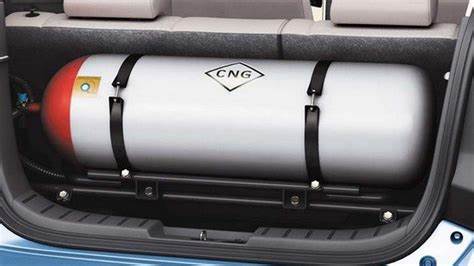The presidency has addressed safety concerns of vehicles that run on Compressed Natural Gas (CNG) after Malaysia announced a decision to phase out CNG-powered vehicles by July 2025.
Nigerians were worried and wondered why Malaysia was doing away with the same CNG-vehicles that the Nigerian government was eager to adopt.
But Bayo Onanuga, Special Adviser on Information and Strategy to the president, on Thursday explained that the Asian country was focused on the safety of LPG (Liquefied Petroleum Gas) following its “unsuccessful transition” from “costly and dirtier fuel.”
Read also: Three severely wounded as CNG cylinder explodes in Benin gas station
“There are also some car owners who have modified their vehicles using liquefied petroleum gas (LPG) cylinders, which are very dangerous,” SA Onanuga cited Malaysian transport minister Loke Fook as saying.
President Bola Tinubu has been pushing CNG cars as an affordable and safe substitute for petrol—with a pump price that stood at over N1025 per litre while CNG was selling at N230 per litre.
Fuel prices rose sharply after President Tinubu scrapped subsidies in May 2023 but a currency crisis further raised the price, leading his administration to create the Presidential Compressed Natural Gas program in August 2023.
On Wednesday, the program revealed more than 100,000 cars have been converted to run on CNG.
In contrast, SA Onanuga said Malaysia had only converted 45,000 vehicles to CNG within a period of 15 years. He explained that Malaysia’s decision to phase out CNG vehicles was made in order to protect its citizens from the possible risks associated with ageing CNG tanks.
Presidential spokesperson allays concerns regarding CNG-powered vehicles
SA Onanuga stressed that Malaysia’s strategy was centred on Liquefied Petroleum Gas (LPG) safety rather than CNG safety.
He continued by saying that Nigeria has plans to increase its domestic tank production capability and that the country picked CNG primarily because it is safe and affordable, selling at N230 per litre.
SA Onanuga state, “Some clarification on Malaysia’s plan to phase out CNG-powered vehicles:
“The Malaysian issue relates to the safety of LPG, NOT CNG. In the original report, Transport Minister Anthony Loke stated, ‘There are also some car owners who have modified their vehicles using liquefied petroleum gas (LPG) cylinders, which are very dangerous.’
“NGV covers both CNG and LPG. Nigeria, in its transition, has adopted CNG ONLY, not both, due to valid safety and cost concerns regarding LPG.”
SA Onanuga further noted, “Malaysia’s programme for CNG-powered vehicles struggled, achieving only a 0.2% conversion rate over 15 years. By contrast, nations like India, China, Iran, and Egypt have seen considerable success.”
He added that Nigeria, in its first year of CNG adoption, is already tackling the issue of replacing 15-year-old tanks, but Malaysia had trouble doing so because of its poor manufacturing capability.
Nigeria launched its own CNG program in 2024 as an alternate fuel for transportation, whereas Malaysia implemented CNG for cabs and airport limos in the late 1990s.
Read also: South Africa mulls EV incentives, subsidies to boost local industry
Nigerians concerned about the safety of CNG-powered vehicles
However, after recent explosions involving some converted vehicles, Nigerians have voiced worries about the safety of CNG automobiles.
Citing Malaysia’s decision to phase out CNG vehicles, many people took to social media to raise concerns about their safety.
On Thursday, Ini Ekott posted a tweet on X.com with the hashtag #iniekott, saying,, “Meanwhile, Nigerian rulers are putting CNG forward as a safe alternative to petrol.
Note the clear-headed and tangible provisions made by the Malaysian government to help citizens with the transition.”
#Otunbakush1 wrote, “And here is Nigeria saying people should convert to CNG… Death Race.”
#PaschalNwosu5 said, “Malaysia introduced CNG in the 1990s; now they are stopping it in 2024, while Bola and his supporters are asking Nigerians to change to CNG. APC is taking you 34 years backwards, but some of you’re defending it.”
#SmartAtuadi similarly wrote, “Yet, here in Nigeria, they want to decimate the population by their tacit promotion and coercive campaign for Nigerians to convert their vehicles to CNG.”
#Oserume1 commented, “If CNG was a good idea, Tinubu would have converted his official luxury Cadillac Escalade from petrol to CNG!”
#PastorGreatKing stated, “Basically, President Tinubu is telling Nigerians to buy CNG as a way of diverting our attention from constant fuel price increases. When cars start blowing up like missiles, we all run back to fuel, but then it’s too late to argue/protest about fuel prices.”
Ben Samuel commented, “Malaysia gained independence around the same time as we did, yet they are moving away from the unsafe practices we are promoting. Western countries are choosing electric vehicles over CNG for a straightforward reason—safety. Unfortunately, this seems to be one of the lowest priorities for this government.”
Mobile Refuelling Units deployed to service CNG-powered vehicles
According to the Nigerian government, Mobile Refuelling Units (MRU) have been introduced to make CNG autogas refuelling services more accessible in response to the country’s increasing demand for these services.
The MRU deployment procedure has already started, according to the state house. The MRUs are full-service CNG refuelling stations, with the capacity to fill and dispense up to 40 CNGs in an hour.
